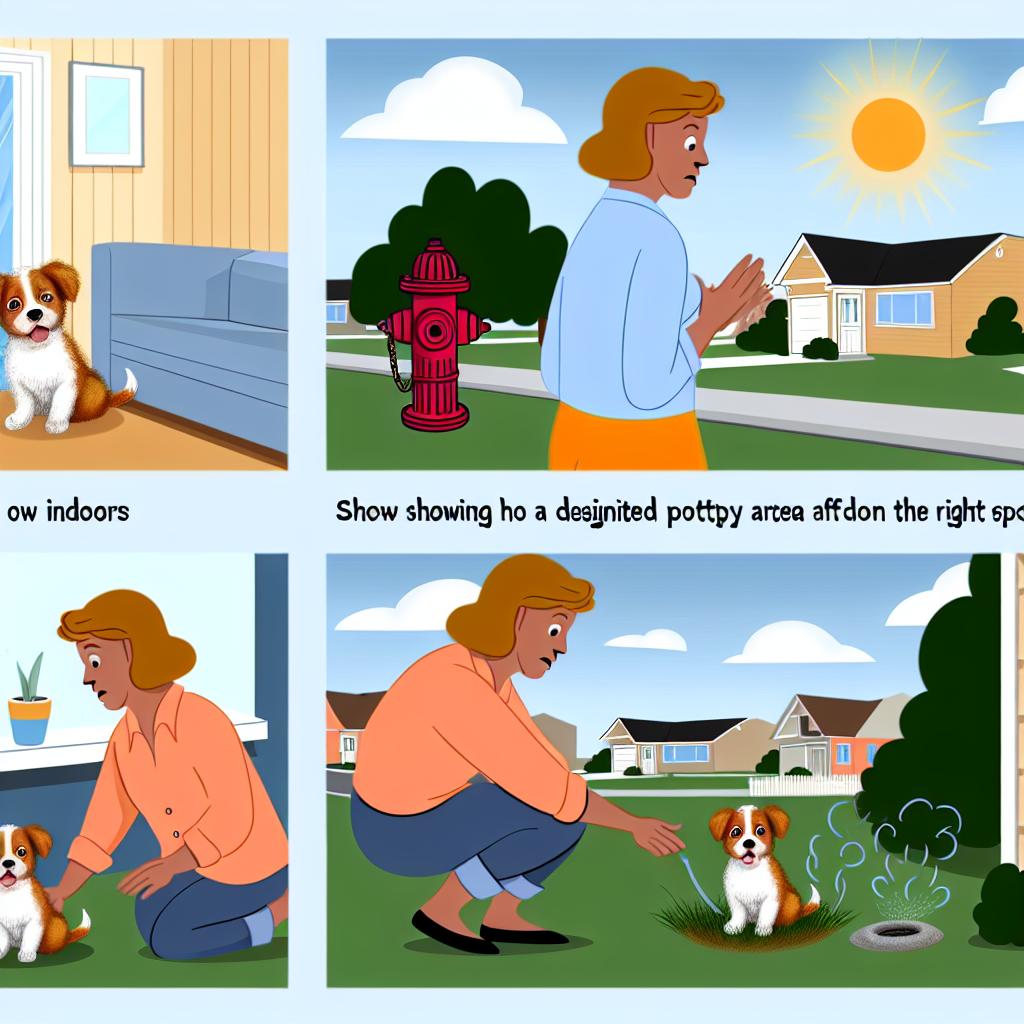Introduction: The Fundamentals of Potty Training Your Dog
Potty training is one of the first essential skills that you need to teach your new puppy. A well-trained dog won’t just make your life easier but also keeps your living space clean and hygienic. But how do you potty train your dog effectively? This in-depth guide covers everything you need to know about this critical aspect of dog training.
Understanding Your Dog’s Natural Instincts
The Importance of Instincts
Dogs have natural instincts when it comes to relieving themselves. Typically, dogs prefer to avoid soiling the area where they sleep and eat. You can leverage this instinct to establish a successful potty training routine. Observing your dog’s behavior and signals will enable you to predict when your pet needs to go outside.
Why Timing Matters
Prime Times for Potty Breaks
Timing is a crucial element of potty training. Dogs usually need to relieve themselves:
- First thing in the morning
- After eating or drinking
- After naps
- After playtime
- Before bedtime
Setting a Routine
Consistency is key when it comes to training any pet. Creating a regular schedule helps your dog understand when it’s time to go out. Take your dog to the same spot each time, and use a command like “go potty” so they associate the spot and command with going to the bathroom.
Establishing the Training Area
Indoor vs. Outdoor Training
Whether you live in an apartment or a house, the principles of potty training remain the same. However, the setting may differ:
- Indoor Training: Ideal for apartment dwellers. Utilize pee pads or a designated indoor spot.
- Outdoor Training: Ideal for homes with yards. Designate a specific outdoor area for potty breaks.
Setting Up the Potty Area
Choose an area that is easy to access and has some privacy. Dogs often prefer to go to the bathroom in a quiet spot. Make sure the area remains consistent so your dog knows where to go each time.
Behavioral Cueing and Positive Reinforcement
Understanding Behavioral Cues
Watch for signs that your dog needs to go out. These cues may include sniffing the ground, circling, whining, or suddenly becoming restless. Recognize these signals and act promptly to take your pet to the designated potty area.
Rewards and Praise
Positive reinforcement is crucial when teaching your dog new behaviors. Praise them and offer treats immediately after they relieve themselves in the correct spot. Avoid scolding or punishment if accidents occur, as it can create fear and confusion. Instead, redirect them to the appropriate area.
Crate Training for Potty Training
The Benefits of Crate Training
A crate can be an effective tool for potty training. Dogs naturally avoid soiling their sleeping area, making crates a useful tool for teaching your pet bladder control and timing.
Introducing the Crate
Make sure the crate is comfortable and positively associated with rewards and relaxation. Allow your dog to explore the crate and gradually increase the amount of time they spend in it.
Dealing with Accidents
Immediate Action
When accidents happen, it’s important to clean the area thoroughly to remove any lingering odor that might attract your dog back to the same spot. Enzyme cleaners are particularly effective at eliminating smells.
Learning from Mistakes
Accidents can offer insights into what went wrong. Were you late in recognizing your dog’s cues? Did you miss a scheduled potty break? Analyze the situation to avoid future incidents.
Conclusion: Consistency is Key
Potty training is an essential part of raising a well-behaved dog. From understanding your dog’s natural instincts to setting a consistent routine and using positive reinforcement, each step plays a critical role in successfully potty training your dog. Remember, patience and consistency are key.
Additional Resources
If you’re looking for more information on potty training your dog, consider reading our article on how to potty train your puppy. For a detailed guide on bathroom training, check out this comprehensive piece on how to bathroom train a puppy. Additionally, you might find valuable tips in our article on how to potty train a dog. For those dealing with specific issues related to poop training, our article on how to poop train a puppy can be particularly helpful.

